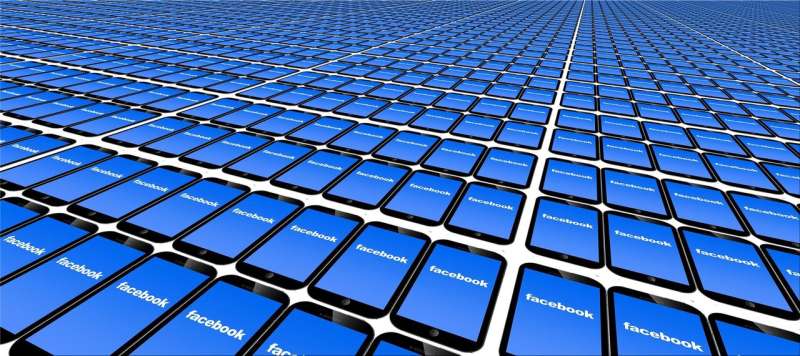Credit: CC0 Public Domain
Need a reassuring hug during the COVID-19 pandemic? Facebook has a new feel-good reaction for that.
When even the smallest physical gesture to convey support isn't possible, Facebook and its messaging app Messenger are rolling out new reactions to express caring and compassion, the company told U.S. Today exclusively.
The new Facebook reaction—an emoji hugging a heart—is intended as shorthand to show caring and solidarity when commenting on a status update, message, photo or video during the coronavirus crisis, Fidji Simo, head of the Facebook app, said in an interview.
On Messenger, users will be able to toggle to a vibrating heart "for when a regular heart does not feel like enough," Simo said.
Reactions on Facebook have never captured the full range of human emotions but were instead intended as a simple and speedy way to communicate positive and supportive feelings or thoughts.
If any situation calls for more emotional bandwidth on social media, it's coping with a global crisis that has spread sickness and death, grief and dread, loneliness and isolation and so much financial hardship, Simo said.
"This idea of a hug reaction came back consistently as one of the emotions and feelings that were missing from reactions. So that's something that was always on our minds," she told U.S. TODAY. "And with the crisis that we are going through right now, there is no doubt that people need more compassion, more support."
A seventh reaction—in addition to like, heart, LOL, wow, sad and angry—was already being explored early this year. Then the pandemic upended everyone's lives, and social media became an even more vital way to connect during social distancing.
"This current crisis really shows a range of people struggling with very different kinds of things. People who are sick or taking care of sick ones. People who are losing their jobs. People who are stuck at home home-schooling their kids. Everyone right now has something in their lives that requires support," Simo said.
Before Facebook redesigned the "like" button, it conducted research for more than a year through focus groups and surveys and by poring over one- to three-word comments, emojis and stickers to determine which emotions people most commonly want to express. Then Facebook narrowed the reactions it was considering to those that translated to cultures around the globe.
This time Facebook decided to dispense with the exhaustive research and plans to roll out the new reaction Friday on Messenger and next week on Facebook, Simo said.
Over the past four years, the expressive icons have become a core part of the daily experience for more than 2 billion people on Facebook. And reactions give the data-driven company even greater insight into what interests and motivates those users, which in turn helps inform what status updates and advertisements they see.
Will this new hug reaction stick around? Facebook has added temporary reactions in the past such as a purple flower for Mother's Day or a rainbow flag for Pride. Simo says it all depends on users' reaction to the reaction.
"This time is going to help us really understand how people are using it, whether they are finding value and whether this reaction is really specific to the moment in time that we are going through or if it's more evergreen," she said. "Based on that, we will decide whether we keep it or whether we remove it at the end of this crisis."
Facebook's response to the COVID-19 crisis is proving to be a test of how the giant social network reckons with its outsize power and influence after a crushing wave of negativity and privacy and security scandals damaged the company's reputation in recent years.
Facebook CEO Mark Zuckerberg has played a visible role during the coronavirus crisis, engaging in public conversations with health experts. The Silicon Valley company created a COVID-19 Information Center at the top of news feeds to offer trusted information from public health organizations to combat a wave of coronavirus-related misinformation.
The addition of a new reaction also shows Facebook's ongoing attempts to morph into a kinder, gentler version of its former self as users question their always-on relationship with the social network.
Arguments over fake news and partisan politics drove wedges between friends. Watching highlight reels of other people's lives made them feel depressed and inadequate. Even worse, some Facebook users sensed that the time they spent on the site was distancing friends and family members from one another and making everyone feel lonelier.
In response, Zuckerberg pushed Facebook to focus on more intimate sharing, whether in messaging apps or in private groups. The goal: to make it safer to open up with friends or be vulnerable with strangers going through similar experiences and struggles.
"This is always something we are looking to help people with," Simo said. "There is a lot of research that does show that when you see people's struggles as well as their highlights, it helps you normalize things and it helps you feel like you can relate. It's very important to make it safe to do that, and this reaction is part of that."
(c)2020 U.S. Today
Distributed by Tribune Content Agency, LLC.
























